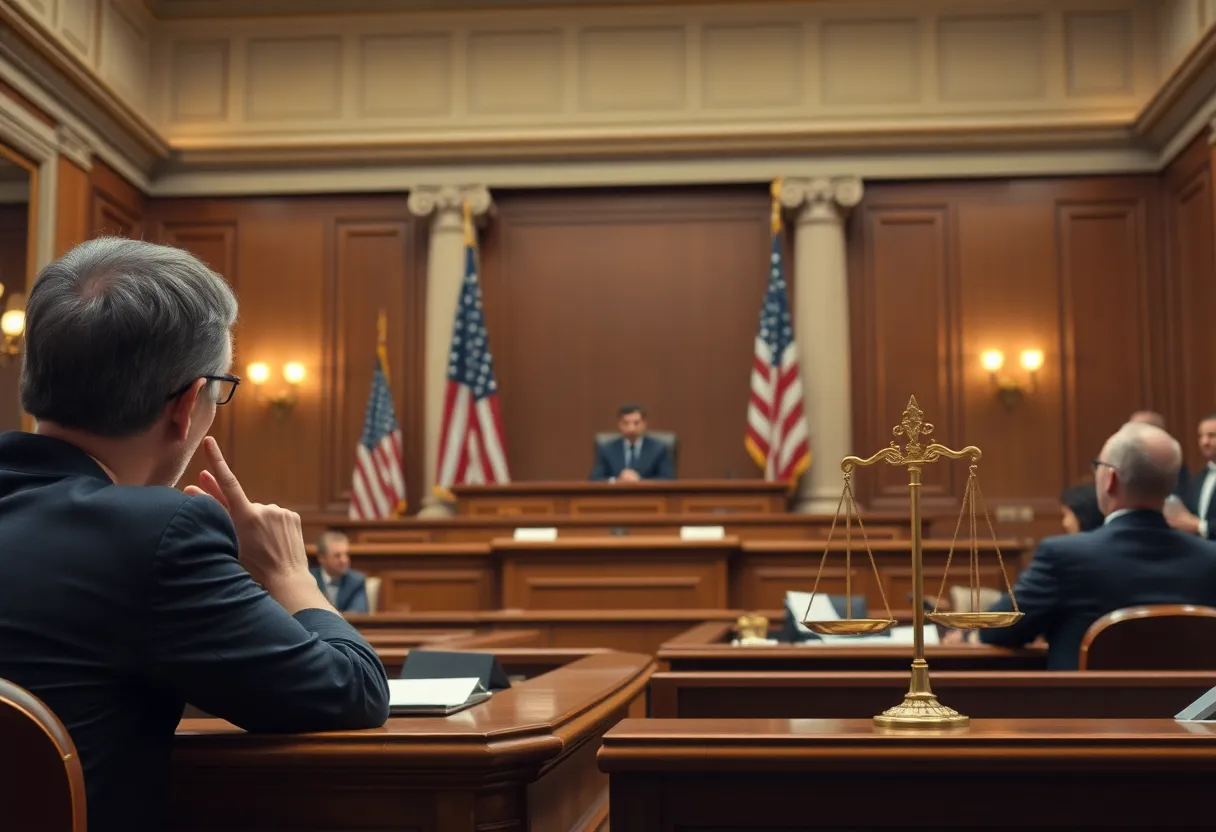News Summary
On October 15, 2025, the U.S. Supreme Court reviewed a crucial challenge to the Voting Rights Act of 1965, focusing on Louisiana’s congressional map and racial considerations in redistricting. Justices raised concerns regarding race-based voting districts, hinting at a need for reassessment. This decision could reshape voting rights and impact minority-majority districts across the nation. A ruling is expected by mid-2026.
Washington, D.C. – The U.S. Supreme Court engaged in critical deliberations on October 15, 2025, regarding a significant challenge to the Voting Rights Act of 1965, led by Republican representatives. Central to this case is Louisiana’s congressional map, specifically focusing on whether the state inappropriately emphasized race in the establishment of a second majority-Black electoral district.
During the session, several conservative justices raised concerns regarding race-based district maps. Justices Brett Kavanaugh and Amy Coney Barrett questioned the long-term viability of such mapping practices, implying it may be time to reassess their necessity. Kavanaugh queried the suitability of indefinite race-based configurations, while Barrett sought clarification on the lower court findings that guided Louisiana’s restructuring of its congressional maps.
Reflecting on the justices’ inquiries, U.S. Representative Cleo Fields, who serves the district in question, remarked that the line of questioning suggested the justices might not fully disregard the Voting Rights Act as unconstitutional, indicating a nuanced consideration of the issues at hand.
The Voting Rights Act was designed to prohibit discriminatory voting practices and underwent amendments in the 1980s to empower minority groups to sue if they believed their voting power had been compromised. A potential ruling against Section 2 of the Act could lead to increased authority for states to modify congressional maps, potentially diminishing the number of minority-majority districts nationwide.
Legal arguments presented included those from Edward Greim, attorney for the Callais group, who contended that Section 2 encourages racial stereotyping of voters and called for its dismissal. Conversely, Janai Nelson, representing Black voters, cautioned that alterations proposed by the state could restrict voter accessibility and possibly revive discriminatory practices previously addressed by the Act.
Louisiana’s Solicitor General defended the necessity of considering race in redistricting as mandated by law, deeming current practices as constitutional. The context for this case is crucial, as it follows a precedent set in 2023, where the Supreme Court affirmed the Voting Rights Act, resulting in Louisiana’s obligation to amend its congressional maps to improve Black representation.
The conservative justices are now tasked with determining whether race-based districting aligns with the principles outlined in the 14th and 15th Amendments, set to ensure political equality. Historically, the Supreme Court has established standards for demonstrating vote dilution, and any alterations in these standards could set a remarkable precedent affecting numerous other voting rights cases across the country.
Amidst the hearing, numerous Louisiana politicians, including state representatives and Governor Jeff Landry, were present, suggesting a vested interest in the implications of the Court’s ruling on future redistricting efforts.
A final decision from the Supreme Court is anticipated by June or July 2026, a ruling that has the potential to reshape voting rights and representation nationwide.
Deeper Dive: News & Info About This Topic
- AP News: Supreme Court Case on Voting Rights
- Wikipedia: Voting Rights Act of 1965
- CBS News: Supreme Court Arguments on Louisiana Map
- Google Search: Supreme Court Voting Rights Act
- The Hill: Supreme Court Case on Redistricting
- Encyclopedia Britannica: Voting Rights Act

Author: STAFF HERE NEWORLEANS WRITER
The NEW ORLEANS STAFF WRITER represents the experienced team at HERENewOrleans.com, your go-to source for actionable local news and information in New Orleans, Orleans Parish, and beyond. Specializing in "news you can use," we cover essential topics like product reviews for personal and business needs, local business directories, politics, real estate trends, neighborhood insights, and state news affecting the area—with deep expertise drawn from years of dedicated reporting and strong community input, including local press releases and business updates. We deliver top reporting on high-value events such as French Quarter Festival, New Orleans Jazz & Heritage Festival, and Essence Music Festival. Our coverage extends to key organizations like the New Orleans Chamber of Commerce and Greater New Orleans, Inc., plus leading businesses in energy, healthcare, and education that power the local economy such as Entergy, Ochsner Health, and Tulane University. As part of the broader HERE network, including HEREShreveport.com, we provide comprehensive, credible insights into Louisiana's dynamic landscape.

